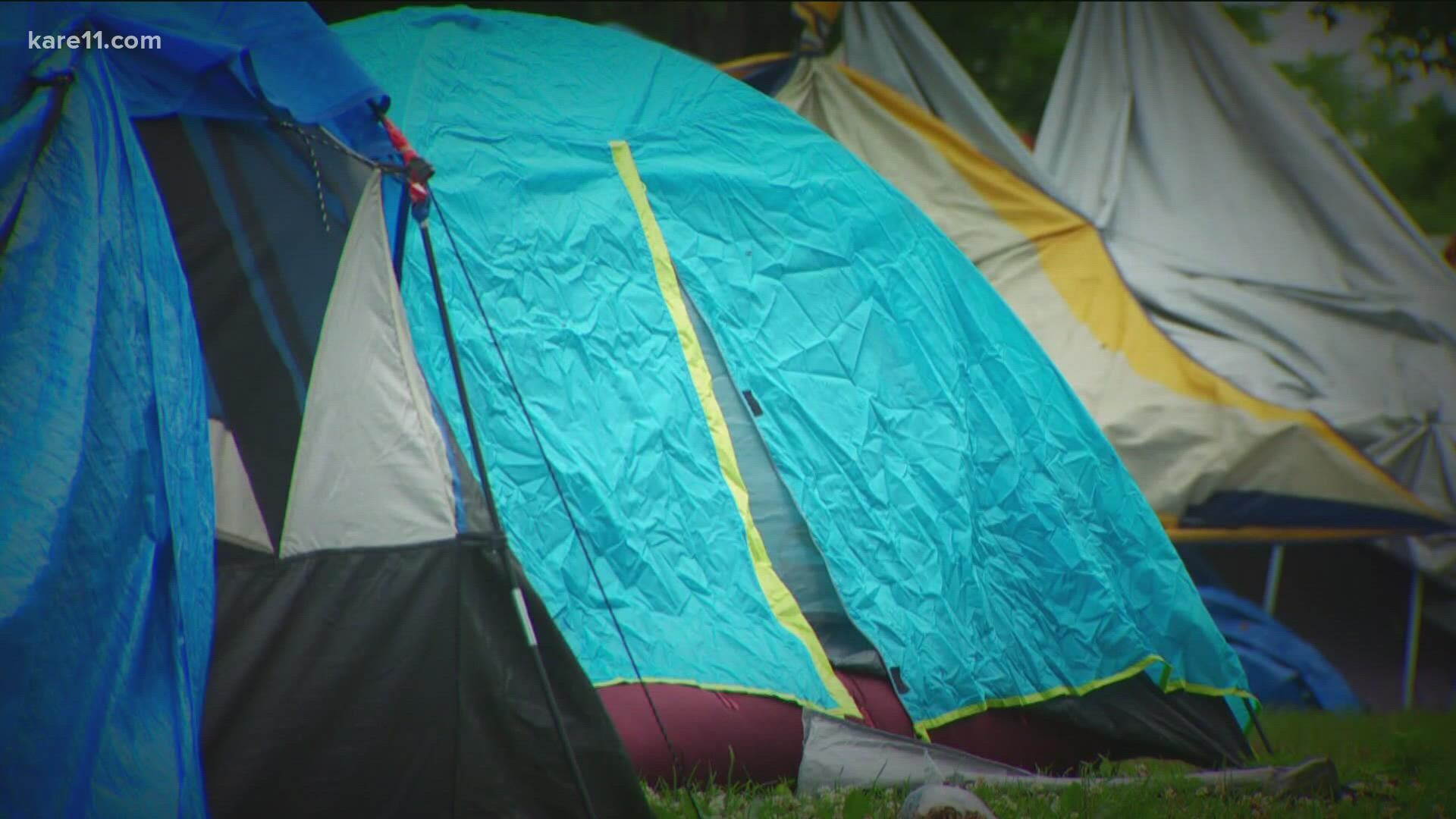MINNEAPOLIS — Now that the U.S. Supreme Court has struck down the federal eviction moratorium, recovery organization Avivo is weighing in on what this could mean for the homelessness situation in Minnesota.
As program manager of Avivo's street outreach team, Justin Labeaux keeps track of encampment locations and the people who live there.
"The main spots where encampments are, here in south at least, are on the Cedar/Franklin intersection," Labeaux said. "There's folks on the median there and then there's folks up on the hill across from Taco Bell and in the Peace Gardens."
His team guides people through the process of finding housing. For example, Avivo helped place around 100 people in an indoor village that opened in March this year and is currently at capacity. Residents are allowed to stay as long as needed but must work with case workers to search for permanent housing. Several government and community partners including Avivo opened the facility.
Labeaux commends the initiative but said more housing solutions are needed.
"There's a lack of affordable housing," he said. "We don't have as many housing openings as we do folks who are interested in pursuing housing."
He anticipates the problem will widen as Minnesota laws protecting renters from being evicted during the pandemic gradually phase out over a timeline stretching from June 30, 2021 through June 1, 2022.
The next phase starts September 12. After that date, the state's website warns that Minnesotans who haven't paid rent and aren't eligible for COVID-19 rental assistance could be evicted.
"It's disheartening to see the eviction moratorium coming to an end," Labeaux said. "It means a lot more folks are going to be put out on the streets, but it's kind of a double-edged sword in the sense that it creates more housing opportunities for the folks who are experiencing homelessness currently. But it's a lot of displacement and a lot of moving folks around and less of getting at the root issue."
Sarah McKenzie, a spokesperson for the City of Minneapolis, says the City has been working with Hennepin County, other jurisdictional partners and community providers on a response to the encampment at Franklin/Cedar. There's no date yet for a closure.
McKenzie says the City is currently monitoring several encampments throughout Minneapolis, providing outreach, hygiene and trash collection support. The City Homeless Response Coordinator team and contracted street outreach teams visit encampments weekly to offer services and shelter. The City responds to encampments on City-owned property and is asked to assist with encampment closures on private property.
McKenzie says Minneapolis approaches homeless encampments with the belief that:
- Everyone experiencing unsheltered homelessness is vulnerable and deserving of being treated with dignity and respect.
- The City must work with community partners to connect people experiencing homelessness to housing, shelter and services.
- Encampments represent a serious health and safety risk, particularly for those staying within the encampment.

